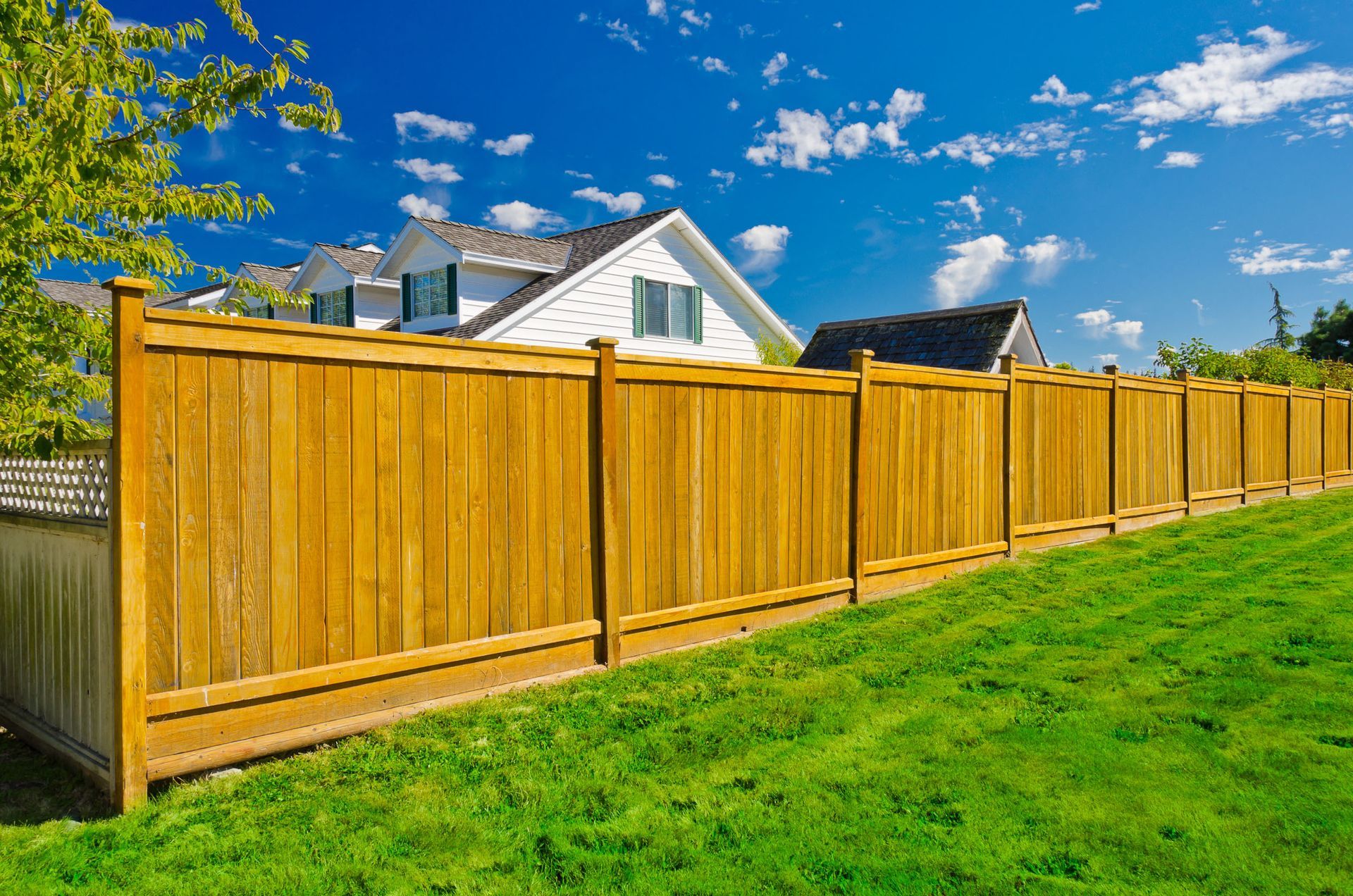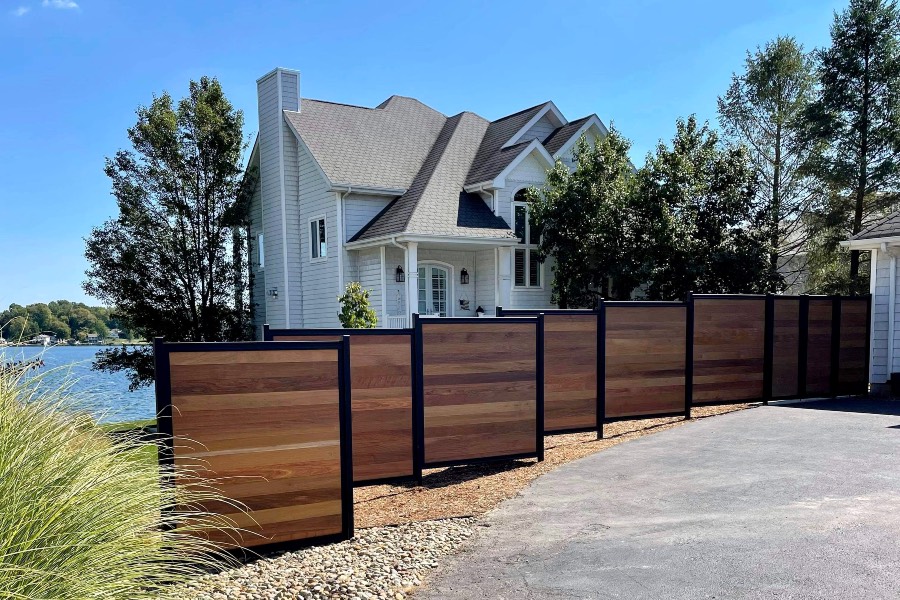All Categories
Featured

When installing a fence, selecting the right material is crucial to stabilizing performance, looks, and spending plan. Timber, vinyl, and light weight aluminum are among one of the most commonly selected secure fencing materials, each with its disadvantages and staminas. This overview discovers the pros and disadvantages of these alternatives to help you make an educated decision.

Timber Fencing. Pros:. All-natural Beauty: Timber's ageless charm can boost any type of home with its cozy and traditional look. Personalized: You can repaint, discolor, or carve timber to fit your style choices. Cost effective: Timber fencing is initially extra economical compared to some other products. Eco-friendly: As a renewable energy, timber is eco-friendly and usually thought about environmentally friendly. Cons:. Maintenance-Intensive: Regular sealing, paint, or discoloration is needed to stop damages from climate and parasites. Prone to Decay: Without appropriate care, wood can rot, warp, or crack gradually. Shorter Life expectancy: Usually, timber fences last 10-15 years, relying on the kind of timber and maintenance. Timber is a wonderful option for those that value visual appeals and are ready to purchase routine upkeep to preserve its appearance and resilience.
Vinyl Fencing. Pros:. Low Upkeep: Plastic needs very little care-- simply periodic cleaning with soap and water. Weather Resistant: It does not warp, rot, or catch insect damages, making it highly resilient in various environments. Durability: Plastic fences can last 20-30 years with little to no repair work. Style Range: Available in a large range of appearances, designs, and shades, consisting of wood-like looks. Cons:. Greater Initial Price: Vinyl fences are more expensive in advance contrasted to timber. Susceptability to Cold: In incredibly cold climate, vinyl can end up being prone and weak to cracking. Limited Repair Options: Matching replacement panels can be challenging if damages happens. Plastic secure fencing is excellent for home owners trying to find a resilient, low-maintenance service that uses modern-day versatility.

Aluminum Fencing. Pros:. Rust-Proof: Light weight aluminum withstands rust, making it an exceptional option for wet or moist environments. Durable: Regardless of being light-weight, aluminum is solid and can stand up to harsh weather condition problems. Reduced Maintenance: It calls for minimal upkeep, commonly only occasional cleaning. Long Lifespan: Aluminum fences can last decades without significant damage. Sophisticated Design: Typically utilized for decorative functions, light weight aluminum fence includes a sleek, advanced look to homes. Disadvantages:. High Initial Investment: Aluminum fencings are amongst the more expensive options on the marketplace. Much less Privacy: The open layouts usual with aluminum fence do not offer much privacy. Vulnerable to Damages: While long lasting, aluminum can damage if struck with enough force. Light weight aluminum is an excellent option for house owners focusing on appearances and sturdiness without calling for much upkeep.
Making Your Decision. When determining in between light weight aluminum, timber, or plastic fence, consider your top priorities:
Timber fits those who appreciate a natural appearance and do not mind placing in maintenance effort. Plastic is the finest option for those seeking a low-maintenance, weather-resistant service. Aluminum supplies streamlined design and durable durability however may do not have personal privacy. By meticulously examining these materials' functions, you can choose a fence that matches your home while fulfilling your practical and aesthetic needs.
Latest Posts
Why Metro Detroit Homeowners Depend On Bath Fitter for Washroom Remodeling
Published Apr 21, 25
1 min read
Expert Automotive Services at Montclare Auto Repair - Fix Your Car Now!
Published Apr 21, 25
2 min read
Personalized Wealth Monitoring with WyHy Federal Lending Institution
Published Apr 21, 25
1 min read
More
Latest Posts
Why Metro Detroit Homeowners Depend On Bath Fitter for Washroom Remodeling
Published Apr 21, 25
1 min read
Expert Automotive Services at Montclare Auto Repair - Fix Your Car Now!
Published Apr 21, 25
2 min read
Personalized Wealth Monitoring with WyHy Federal Lending Institution
Published Apr 21, 25
1 min read